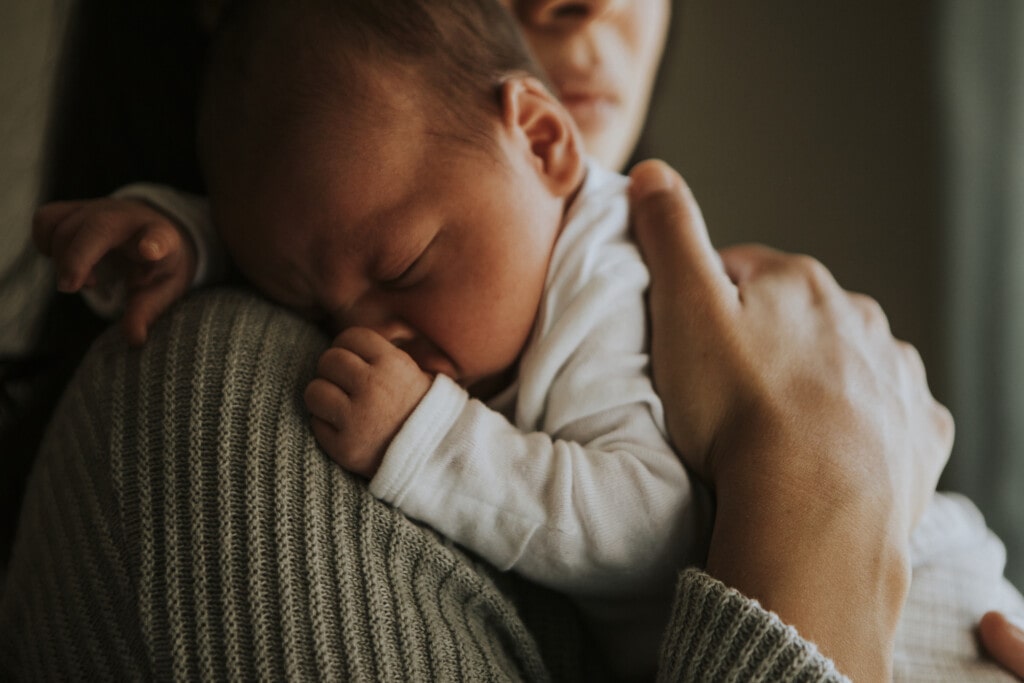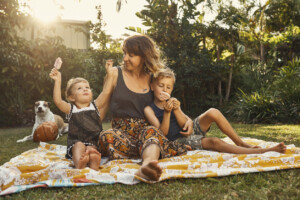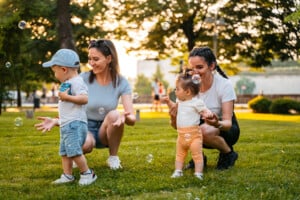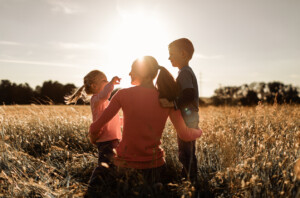Becoming a mom is a transformational process. There is no doubt that giving birth and having this new baby to take care of changes you. You are no longer the same person, and that’s the way it has to be. Even though you feel this huge change, you may wonder what exactly has changed about you.
The answer is multi-faceted and complicated. Becoming a mom doesn’t just change you in one area of your life. It changes you in every area. At your core, you will probably have the same characteristics. Some of the same things will be important to you. But there are many other areas, both physical and emotional, that will never be the same. To take care of a baby and be a mother, some things have to change, and many of them have been studied and backed by science.
How Becoming a Mom Changes You
Cellular Changes
When you look at our most basic level—our cells—you can tell that carrying a baby left a significant mark on you. A 2015 study out of the Netherlands confirmed that fetal cells enter into and spread throughout her body while a woman is pregnant.1 They confirmed this by detecting Y chromosomes in the DNA of women who had been pregnant with boys.1
This transference of cells, called microchimerism, occurs with girls too. But it’s probably more difficult or impossible to detect, given that both have only X chromosomes. Given that you shared everything with your growing baby, isn’t it crazy that they left a mark on you?
The cool thing about this is that these chromosomes remain in your body (possibly even decades after birth) and could have benefits for you. The International Journal of Epidemiology completed a study concluding that the presence of male chromosomes in the mom improves survival rate in both cancer and cardiovascular disease.2
Body Composition
Becoming a mom also changes our body composition in the postpartum period. According to a study by Korea University Guro Hospital from 2011, even though women’s overall weight decreased during postpartum, body composition as a whole changed.3 Body water and fat-free mass went down, but fat mass and visceral fat area increased in the postpartum period.
These results aren’t that surprising, given the changes that happen to the body during pregnancy. But a study on if these changes continue past the postpartum period would be especially interesting. As moms, it can be hard to go back to the body we had before pregnancy. Is this simply because our body composition has changed through this process and won’t go back?
Lactation
If you breastfeed, you can also expect other physical changes that come with becoming a mom.4 Just as with pregnancy, your body will prioritize the baby. Your maternal tissues and metabolism will be affected by hormonal changes so that you can sustain breastfeeding. The lactation process causes your bones to lose minerals, primarily the calcium that is needed. Once the baby weans, the bones will remineralize. Not only are your bones affected, but your kidneys and gut will also adjust how they function to provide the calcium and other minerals needed during this time.
The mammary glands also undergo considerable changes to function how they were intended. Much of this is done through hormonal changes, such as increased estrogen and progesterone.
Brain Changes
While we feel the emotional effects, they are rooted in a change in the brain when you become a mom. Lactation doesn’t only affect the parts of the body mentioned above. According to a report by Scientific American in 2006, female mammals have shown that hormones surrounding pregnancy and lactation can cause structural changes to the brain and increase neuron size.5
Improved Memories
It is hard work taking care of a baby. It really is the ultimate learn-on-the-job position! Additional research found that the hormones associated with pregnancy combined with the entire experience and birth improve our ability to learn and our memory.6
Psychological Adaptation
Other changes that we undergo are psychological, so they are attributed to changes in the brain. During pregnancy, women begin to watch more closely for threats in their environment.7 Then comes sensitivity to infant cues and an even stronger attachment to the baby before it’s born. It was found that functional plasticity, or the ability to adapt to life changes, starts even before your baby is born. Your brain is already preparing you and showing you the things to pay attention to to help prepare you for motherhood.
For new mothers, these instincts will get stronger. According to animal studies, parts of the brain are responsible for maternal motivation through a dopamine release.8 It has also been shown that infant cries activate the social information circuit, which is associated with self-monitoring, empathy, and reflection.9 This connection helps us understand how mothers can understand cues from their infants and respond to them correctly.
Ask any mom, and she will tell you she has changed since having a baby! Some moms may not know that a lot of science confirms these changes. Our bodies and brains change. Hormones change. Our babies even leave some of their genetic makeup behind. How can we be the same after giving birth? But would we want to be? Our bodies prepare us for this journey as best they can through various means, and we’re better mothers because of it. That’s really what it’s all about.






























